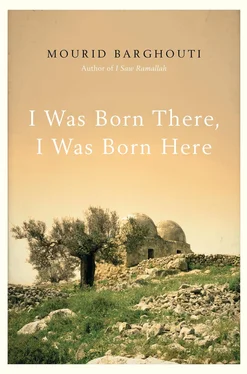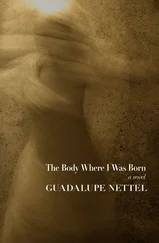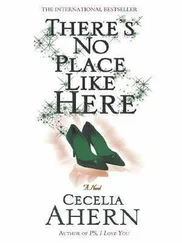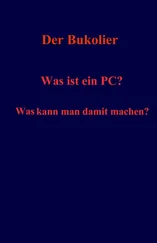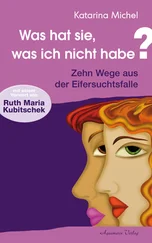In spite of the difficulty of what I try to do, I love to write poems using the softest possible voice, even while they preserve the roughness of the history that fills poets’ bodies, their rooms, and their memories, which are sharp as Swiss knives. The heroic tone in the tyrant’s voice has helped me rid myself of poetic heroics. The fierce Italian has saved my poetry from fierceness.
In the red Alhambra, I finish the poems that are born here in my white office, and what is born in the Alhambra or at the Upside Down café in front of the park I finish in Amman and Cairo.
I cannot calculate how much I’ve written with my eraser, for I have torn up much and regretted much. How happy I’ve been at my eraser’s cruelty! Doesn’t deleting give as much pleasure as writing? What does writing get its value from if not from what we have deliberately erased … so that it stands out more clearly?
The tree that bears a thousand buds resolutely and without hesitation abandons many of its fruits and allows them to fall dead next to its trunk so that it may take better care of the rest.
Trees fascinate me not just for their beauty but because I see in them also a symbol of resistance without bluster or bragging. It fascinates me too that the unarmed tree knows that everything that is permanent is temporary.
Come and see:
Their nakedness shudders silently beneath the whip of the wind.
Birds dare not visit them on their silent war front, nor bees.
One clever branch tells another:
“Slow down!
This is no time for greening, hot head.”
The branch nods to its friend, with an obedience
As complete as the surrounding emptiness.
The trees look like bombed out villages abandoned by their inhabitants
Who have taken with them their colors, their breezes, and their shadows
And left them surrounded by roaring hardships.
No one is left to share their moans beneath the blows of the thunder
And the electric torture sessions of the lightning.
Come and see:
And because many do not look at a field that is clothed in nothing,
Because the great do not disclose their mysteries, Because the trees, like us, are fighting an alliance of the snows of the north,
The fog of the gods,
And the lack of a helping hand,
And because all probabilities are open,
Come now. Come and see:
Teach your heart to trust their silence,
Which resembles ours.
Come and see:
The trees, which, like us, looked dead or almost so,
Were fighting all the time!
And on a known day,
At the one and only appointed time
And because nothing is ashamed when its time is come,
The clever branch says:
Now! Now, companions,
Now, enduring, patient branches,
Now
Let us proclaim our spring.
The kingdom of leaves
Opens its doors to the birds, to the bees,
And we humans prepare the baskets.
And on a known day,
The stage hand raises the curtain:
The basket of fruits at the center of the homely scene
Blazes
Like victory.
The Alhambra was the second place in which I’d lived on my own after my time alone in Budapest. I had a year ahead of me to perfect my solitude once more. It wouldn’t take much training. I have enough experience of solitude to open an institute.
The list of friends grew longer by the day, as did the list of relatives with whom I renewed acquaintance after my long absence in distant countries. But definitely I was in love with the new-old place. Long walks among the trees and on the hills, and getting to know the gardens of the houses with their lemon, orange, mandarin, and loquat trees, was a pleasure surpassed only by that of stealing one or two figs cut from the branches close to the street, and the sensation of the smell of jasmine that rose from the walls and spread to the four corners of the earth, filling my whole body and my chest.
It made me happy.
And, excited by that vital mixture, the writing squirmed inside me as though kicking me with its feet. Even though I didn’t know its name and sex, it was a life coming from the future and wanting to emerge into the present.
I had constructed my own Upside Down café for my writing here just as I had constructed my own Zsolnay Café in Budapest. Here, in the Alhambra, I used Fayrouz and Pavarotti; at the Upside Down, there was Umm Kulthoum. At the Zsolnay, there was Mme. Gabriella, the seventy-year old pianist, who would greet me with Beethoven’s Für Elise as soon as I entered. I’d send her, via the waiter, a glass of Rémy Martin in acknowledgement and she’d put it on the edge of the piano, where the cognac would remain unshaken no matter how loud the music at the crests of the crescendo. She would thank me with a nod and a calm smile and move on to Rachmaninov, Chopin, and the rest of her daily program. I’d sit down and the waiter would set before me a pen, blank sheets of paper, and a cup of coffee with a piece of the café’s special chocolate on the saucer, leaving it up to me to order anything else I might want after that. I would write, erase, rip, and keep only a little, but I’d return carrying a draft that I could work on through the night.
Summer arrived. Tamim came to Ramallah to spend a few days with me before joining Radwa in Amman, where she would arrive with the start of the university vacation. This time he came on his own. And this time too he got in easily.
I went with him to all the places I had formerly known in Ramallah and al-Bireh, and to new ones too.
Some of his poems had been published in the newspaper al-Ayyam and when he visited the House of Poetry, they offered to publish his first collection of verse in Palestinian dialect. He handed over to them his collection Mijana , and was both scared and happy.
Unexpectedly, I received some good news.
9. Things One Would Never Think Of
Anis came to me and said he’d been given the task of organizing a conference of Palestinian expatriates in Ramallah and that my brother Majid was among those invited. Incredulously, I said to Anis, “But he doesn’t have a Palestinian identity card, so how will the Israelis allow him in?”
“We’re going to get week-long visitors’ permits for all the invitees.”
“They’ve agreed to that?”
“They’ve agreed.”
“When’s the conference?”
“Next week.”
Majid came from Doha to Amman. There our mother decided to come with him, to see me, Ramallah, and Deir Ghassanah.
On the promised day, I asked Tamim to go to Amman to accompany his grandmother and uncle on the journey. I took him as far as Jericho and he went on to Amman. Then the three of them returned together and the Alhambra was brought to life.
Majid, who hadn’t seen Ramallah since he’d gone there clandestinely on foot after the occupation in 1967, was in seventh heaven.
I had to make a great effort to prevent my mother from getting engrossed in straightening up the apartment and making improvements.
Nothing about my rented apartment pleased her. The kitchen was “the size of a needle’s eye,” of course. The living room set was “commercial furniture” and the arrangement of the chairs was “wrong — this way’s better.” She asked me to buy new kitchen equipment and what not. When she learned that I ate in restaurants, she said pityingly, “Restaurant food will make you sick, you poor thing. What could be better than home cooking?”
Читать дальше
